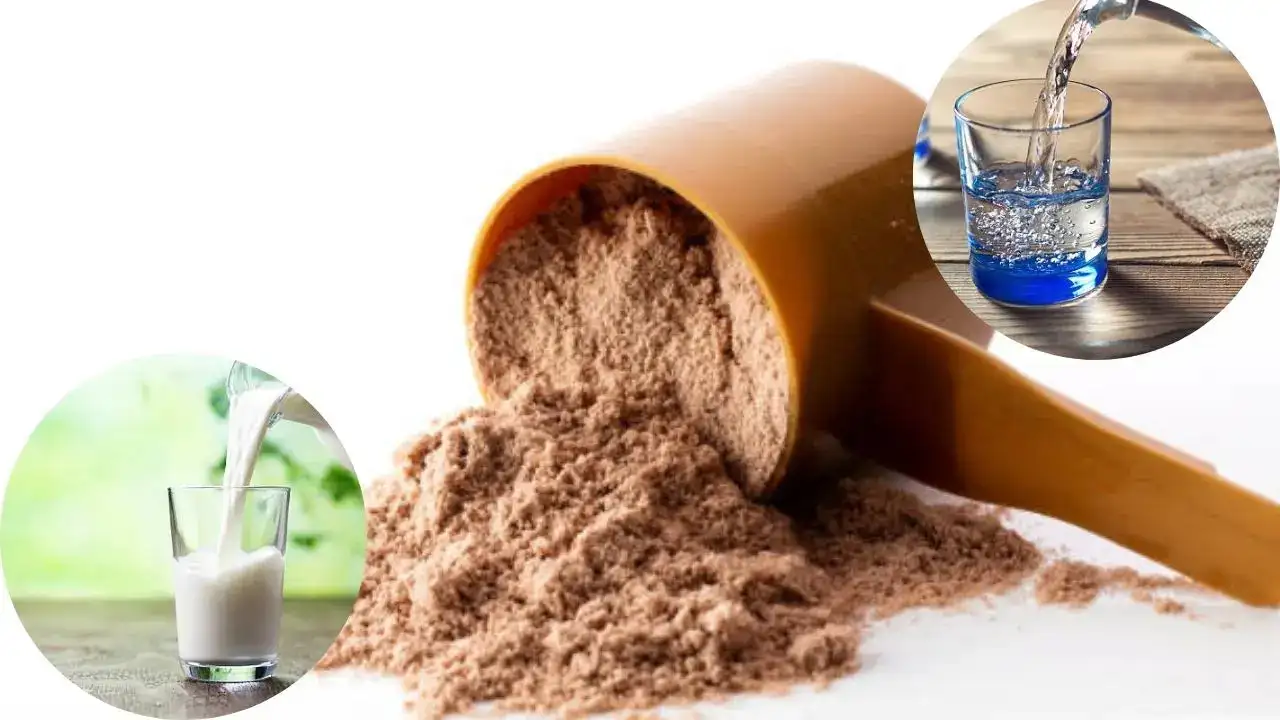
You can make protein shakes with different ingredients like milk or water, which impacts their protein content and overall nutritional value
Protein shakes are considered among the most popular ways to boost your intake of protein and support muscle building, bone health, and weight loss. Protein—known as the building blocks of the human body—is an important macronutrient that supports your cells, organs, and tissues.
You can easily make protein shakes with different ingredients like milk or water, which impacts their protein content and overall nutritional value.
What should you take protein with?
Experts say whether you are mixing protein powder with milk or water depends on many fact which include your health goals and personal taste preferences. For a low-calorie protein shake, it is important to mix it in water rather than milk since water has no calories.
However, if you want to add a few calories, milk is the way to go forward, as it is packed with carbs, fat, and protein. Data says a cup of milk contains around 150 calories, 11.3 grams of carbs, 7.81 grams of fat, and 7.98 grams of protein.
It also depends on how you like your shake to taste. To add more creaminess to your protein drink, you can make it with plant-based milks like almond, coconut, and soy milk. Water-based shakes are usually thinner and without any flavour. Also, for those who are lactose intolerant—suffering from a digestive condition where the body has difficulty digesting lactose, a sugar found in milk and dairy products—you can always choose water over milk.
The inability to digest lactose can lead to symptoms like bloating, gas, and severe diarrhoea.
What are the benefits of having protein shakes in water?
- Since water has zero calories, it is great for weight loss
- Water-based protein shakes are super convenient and can be enjoyed at any time without worries about the drink going bad.
- Water mixed with protein helps cut your carb intake.
Benefits of having a milk-based protein shake
- A cup of milk only adds more protein to your shake.
-
Milk has whey and casein proteins, which help stimulate muscle growth
- Milk is also rich in carbs, which replenish muscle stores of glycogen, the storage form of glucose your body uses as energy during intense workouts.
- According to studies, drinking milk after exercise increases muscle growth, reduces exercise-induced soreness and muscle damage, and rehydrates muscles.
- Milk provides strength.
Water or milk, which gives better results after a workout?
According to experts, whether you add milk or protein to your shake, both are equally effective ways to reach your body composition goals. However, mixing your protein powder with milk may be a better option for gym-goers and those who regularly strength train.
Milk helps with muscle growth and reduces soreness and muscle damage after workouts.
Protein powder, like whey protein, also has the same benefits. So, even though drinking your protein shake with milk may have some advantages, you will still benefit from supplementing with protein powders, like whey or pea protein, in general.
Get Latest News Live on Times Now along with Breaking News and Top Headlines from Health and around the world.
